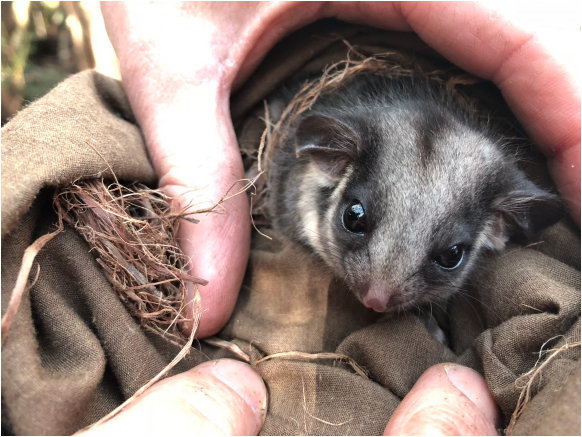 Ash and chemicals from some of BC’s largest wildfires are winding up in the Fraser River, which could eventually lead to low oxygen levels and harm marine life, say UBC researchers. In a peer-reviewed study, published in the journal Science of The Total Environment, scientists linked increases in the concentrations of compounds like arsenic and lead, and nutrients such as nitrogen and phosphorus, to wildfires that had burned near the 1,375 kilometre long river. These are all compounds that are found naturally in the water. However, researchers tracked a significant increase in compounds as wildfires were happening near the river. The researchers studied fires within 500 metres, 1,000 metres and 1,500 metres. Fires burning close to major waterways had immediate influence on water quality, said Emily Brown, a research scientist at UBC’s institute for the oceans and fisheries. The more distant wildfires had delayed influence on water quality.
Ash and chemicals from some of BC’s largest wildfires are winding up in the Fraser River, which could eventually lead to low oxygen levels and harm marine life, say UBC researchers. In a peer-reviewed study, published in the journal Science of The Total Environment, scientists linked increases in the concentrations of compounds like arsenic and lead, and nutrients such as nitrogen and phosphorus, to wildfires that had burned near the 1,375 kilometre long river. These are all compounds that are found naturally in the water. However, researchers tracked a significant increase in compounds as wildfires were happening near the river. The researchers studied fires within 500 metres, 1,000 metres and 1,500 metres. Fires burning close to major waterways had immediate influence on water quality, said Emily Brown, a research scientist at UBC’s institute for the oceans and fisheries. The more distant wildfires had delayed influence on water quality.
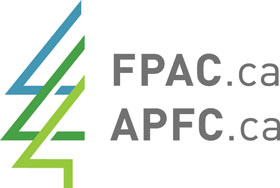 Forest Products Association of Canada issued this statement to recognize the release of the Kananaskis Wildfire Charter at the G7 meetings: Canada’s forest sector welcomes the G7’s commitment to address the environmental, economic, health, and social challenges that come with the increase in catastrophic wildfires globally. Over 3.7 million hectares have already burned in Canada this year, putting us on pace for our second worst fire season on record. To put that in some context, more than five times the land base that Canada’s foresters would harvest in an entire year has already burned in 2025. And when Canada’s foresters do their work, they ensure the forest is regrown. Fires in some parts of Canada are now burning so hot that regeneration of these forests are challenged due to scorched soils. The time for action is now. Quite simply, fires will get worse if we are not more proactive in managing fuel loads and our aging forests.
Forest Products Association of Canada issued this statement to recognize the release of the Kananaskis Wildfire Charter at the G7 meetings: Canada’s forest sector welcomes the G7’s commitment to address the environmental, economic, health, and social challenges that come with the increase in catastrophic wildfires globally. Over 3.7 million hectares have already burned in Canada this year, putting us on pace for our second worst fire season on record. To put that in some context, more than five times the land base that Canada’s foresters would harvest in an entire year has already burned in 2025. And when Canada’s foresters do their work, they ensure the forest is regrown. Fires in some parts of Canada are now burning so hot that regeneration of these forests are challenged due to scorched soils. The time for action is now. Quite simply, fires will get worse if we are not more proactive in managing fuel loads and our aging forests.  Since mid-May, wildfires across Canada have burned 9.6 million acres, prompting the evacuation of approximately 40,000 people. According to Indigenous Services Canada, a government ministry, more than half of those evacuees are from First Nations communities, and nearly 34 tribes in almost every province are affected. The sudden rush of refugees has challenged the country’s crisis response infrastructure as people seek shelter and services in cities far from their homes, with little information of when they may return to their communities. …Indigenous Services Canada has been authorized to release $20.9 million to disburse to First Nations. …According to an Intact Centre report in 2023, 60 percent of Canadian communities are now vulnerable to wildfires, a third of which are Indigenous living on reserves.
Since mid-May, wildfires across Canada have burned 9.6 million acres, prompting the evacuation of approximately 40,000 people. According to Indigenous Services Canada, a government ministry, more than half of those evacuees are from First Nations communities, and nearly 34 tribes in almost every province are affected. The sudden rush of refugees has challenged the country’s crisis response infrastructure as people seek shelter and services in cities far from their homes, with little information of when they may return to their communities. …Indigenous Services Canada has been authorized to release $20.9 million to disburse to First Nations. …According to an Intact Centre report in 2023, 60 percent of Canadian communities are now vulnerable to wildfires, a third of which are Indigenous living on reserves. 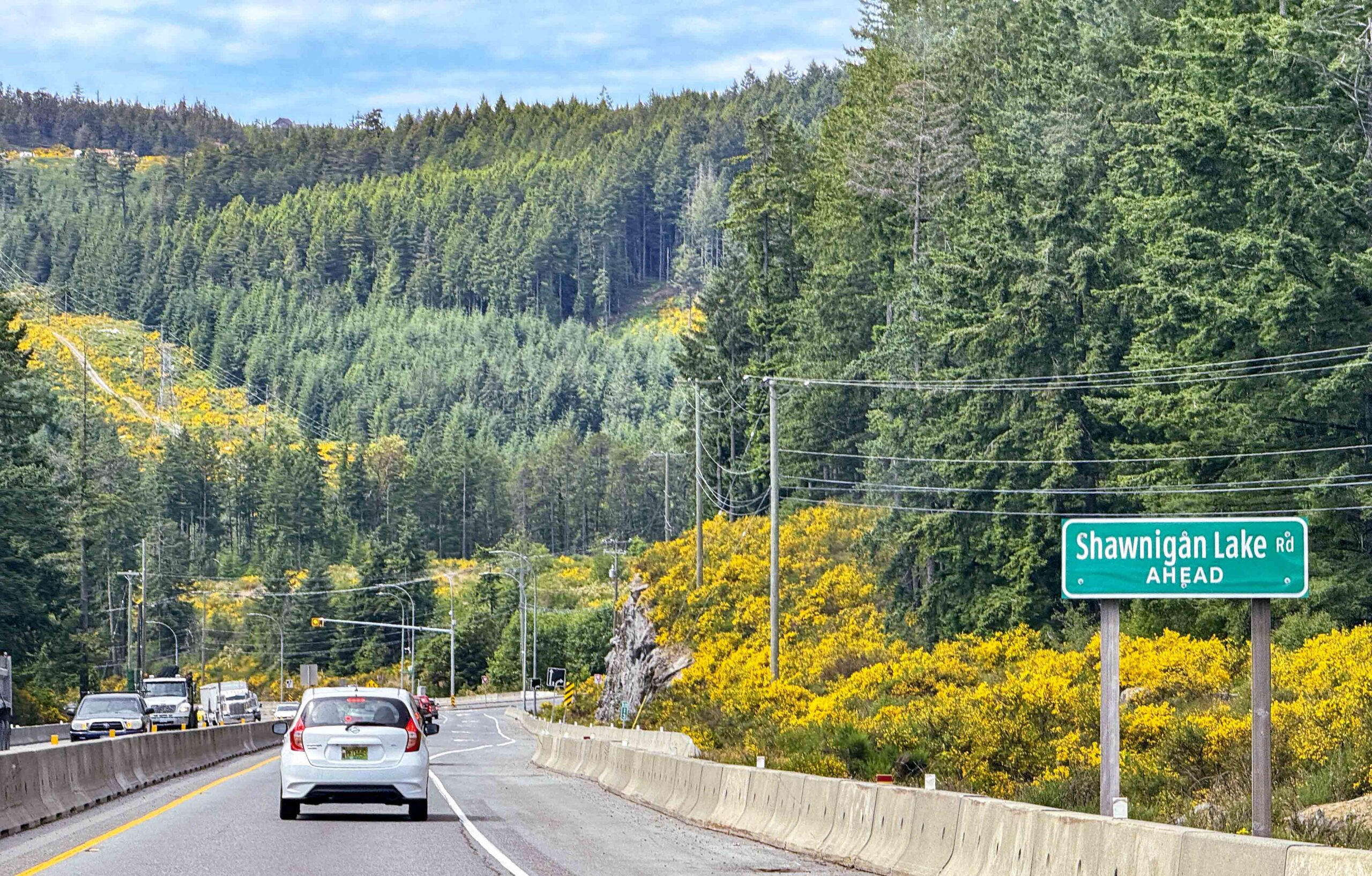 QUALICUM BEACH, BC — Alien invasive species like Scotch broom do not move into a void. They displace something that was originally present. Broom displaces grasses and native plants – but while grass is food, broom is toxic to grazing animals, wild and domestic. Broom provides flowers for bees in May – but wipes out the native flowers that bees rely on for the rest of the season. Farmers call broom the Scourge of Pastureland – and it affects our food security. Broom competing with young trees on forest land creates millions of dollars in losses to forest companies – and the loss to the future of our forests is beyond measure. Biodiversity? Researchers designate Scotch broom as THE invasive species doing the greatest harm to species at risk in all of B.C. Broom is the top offender of biodiversity. Wildfire? Broom’s high oil content, naturally occurring dry branches, and dense growth patterns make broom extremely flammable. FireSmart classifies broom in the highest risk category.
QUALICUM BEACH, BC — Alien invasive species like Scotch broom do not move into a void. They displace something that was originally present. Broom displaces grasses and native plants – but while grass is food, broom is toxic to grazing animals, wild and domestic. Broom provides flowers for bees in May – but wipes out the native flowers that bees rely on for the rest of the season. Farmers call broom the Scourge of Pastureland – and it affects our food security. Broom competing with young trees on forest land creates millions of dollars in losses to forest companies – and the loss to the future of our forests is beyond measure. Biodiversity? Researchers designate Scotch broom as THE invasive species doing the greatest harm to species at risk in all of B.C. Broom is the top offender of biodiversity. Wildfire? Broom’s high oil content, naturally occurring dry branches, and dense growth patterns make broom extremely flammable. FireSmart classifies broom in the highest risk category. Elphinstone and West Howe Sound community associations’ efforts to have B.C. Timber Sales (BCTS) defer the 35.2 hectare Elphinstone Highlands cutblock (TA0519) from its current Q1 sales schedule received support from the Sunshine Coast Regional District (SCRD) board. Provision of a letter of support for the deferral requests was endorsed at the board’s June 12 meeting. According to the BCTS Chinook area sales schedule released April 17, TA0519 was slated to go to auction by June 30. In a June 18 email response to Coast Reporter, the Ministry of Forests stated that “Sales schedules are issued to notify of upcoming proposed timber sales auctions. BC Timber Sales starts accepting bids when a licence is placed on BC Bid for auction… TA0519 is a partial harvest/commercial thin sale and was pulled from BC Bid due to an administrative error. It is anticipated that TA0519 will be reposted this fiscal year.”
Elphinstone and West Howe Sound community associations’ efforts to have B.C. Timber Sales (BCTS) defer the 35.2 hectare Elphinstone Highlands cutblock (TA0519) from its current Q1 sales schedule received support from the Sunshine Coast Regional District (SCRD) board. Provision of a letter of support for the deferral requests was endorsed at the board’s June 12 meeting. According to the BCTS Chinook area sales schedule released April 17, TA0519 was slated to go to auction by June 30. In a June 18 email response to Coast Reporter, the Ministry of Forests stated that “Sales schedules are issued to notify of upcoming proposed timber sales auctions. BC Timber Sales starts accepting bids when a licence is placed on BC Bid for auction… TA0519 is a partial harvest/commercial thin sale and was pulled from BC Bid due to an administrative error. It is anticipated that TA0519 will be reposted this fiscal year.”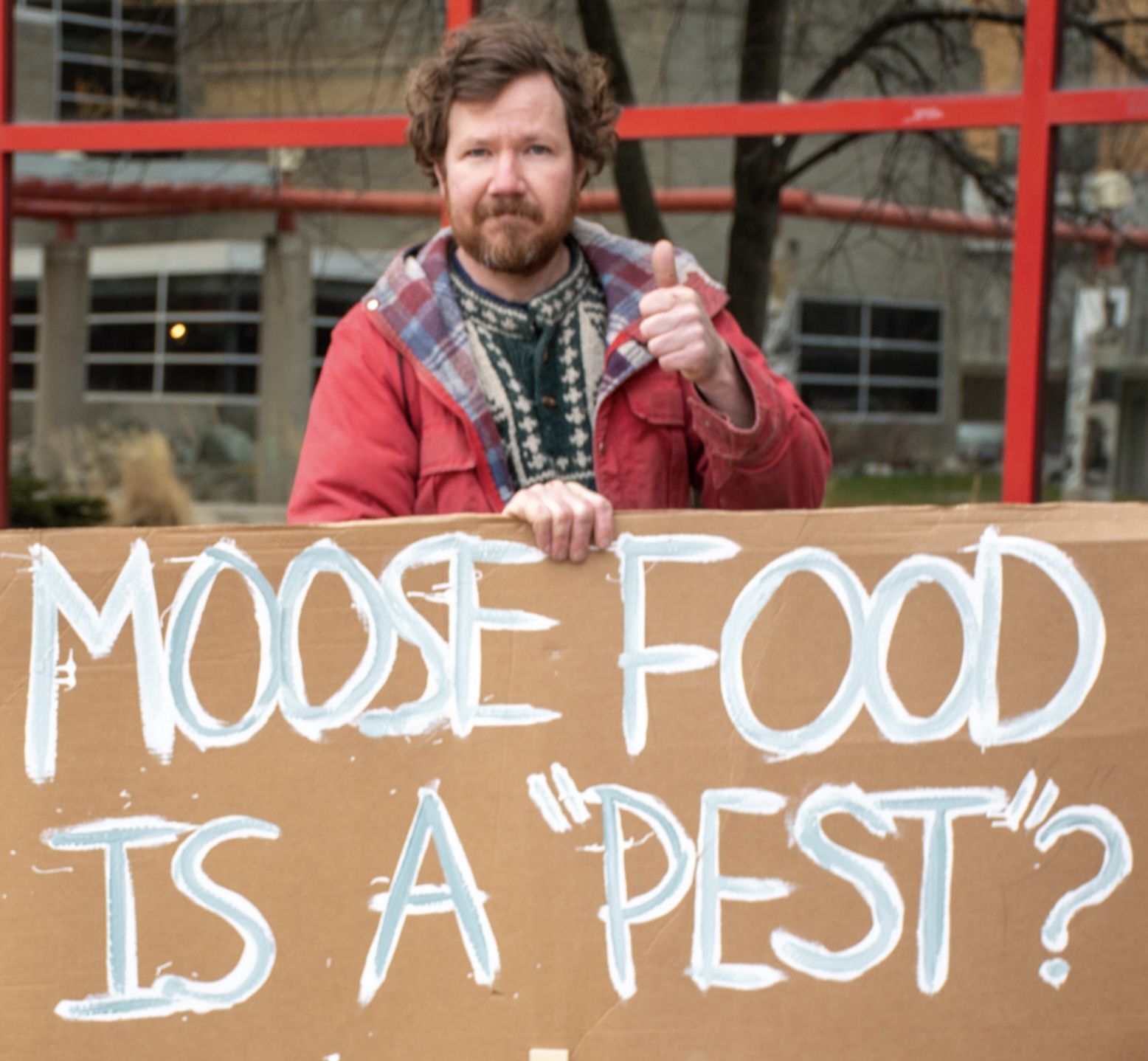
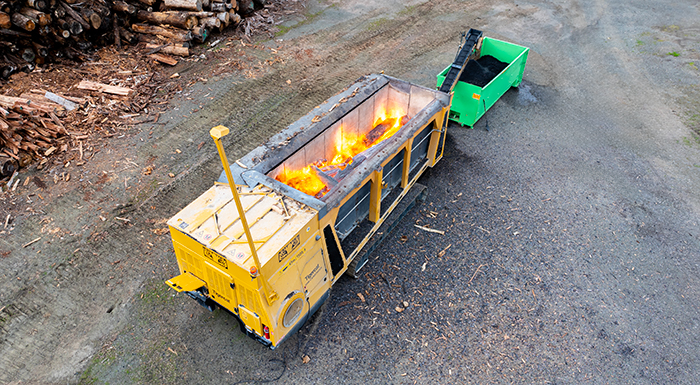

 An insolvent BC forestry company’s attempt to sell off a forest licence to pay back creditors has triggered a dispute with several First Nations, who allege the company is attempting an “end run” around their rights. This spring, three Indigenous groups challenged the Teal-Jones Group before a BC Supreme Court judge for attempting to complete an interim transfer of forest licence A19201 to Western Canadian Timber Products (WCTP). The move came before the B.C. Minister of Forests could consult with 39 First Nations who have territory in the area. …The legal dispute hinged on whether the proposed interim agreement triggered a duty to consult with First Nations. But Fitzpatrick ruled Teal Jones’ agreement with WCTP remained “the highest and best offer presently available for consideration and approval after all that time.” The judge concluded that the sales process had been conducted in a “fair and reasonable manner”.
An insolvent BC forestry company’s attempt to sell off a forest licence to pay back creditors has triggered a dispute with several First Nations, who allege the company is attempting an “end run” around their rights. This spring, three Indigenous groups challenged the Teal-Jones Group before a BC Supreme Court judge for attempting to complete an interim transfer of forest licence A19201 to Western Canadian Timber Products (WCTP). The move came before the B.C. Minister of Forests could consult with 39 First Nations who have territory in the area. …The legal dispute hinged on whether the proposed interim agreement triggered a duty to consult with First Nations. But Fitzpatrick ruled Teal Jones’ agreement with WCTP remained “the highest and best offer presently available for consideration and approval after all that time.” The judge concluded that the sales process had been conducted in a “fair and reasonable manner”.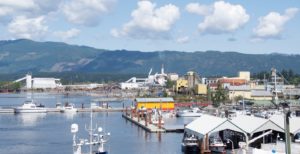 Looking over the 40-acre waterfront Somass property, Port Alberni’s Chief Administrative Officer Mike Fox sees an area that is key to shaping the city’s future. “I believe this project will be one of those defining moments where people will look back years from now and comment on how the community rallied and how we enabled the development of this key waterfront area,” he says. The land that once housed Western Forest Products Somass Division was purchased from the timber giant after the mill was shuttered in 2017 and the land sat vacant for more than a decade… While there was early discussion about trying to incorporate some of the structures used in the operation of the mill, geotechnical and structural analysis work is being done to see if any meet building standards. One of the buildings included in initial discussions burned down last summer.
Looking over the 40-acre waterfront Somass property, Port Alberni’s Chief Administrative Officer Mike Fox sees an area that is key to shaping the city’s future. “I believe this project will be one of those defining moments where people will look back years from now and comment on how the community rallied and how we enabled the development of this key waterfront area,” he says. The land that once housed Western Forest Products Somass Division was purchased from the timber giant after the mill was shuttered in 2017 and the land sat vacant for more than a decade… While there was early discussion about trying to incorporate some of the structures used in the operation of the mill, geotechnical and structural analysis work is being done to see if any meet building standards. One of the buildings included in initial discussions burned down last summer.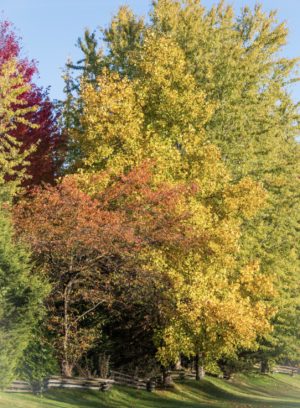 Whistler’s mayor and council advanced a pair of sweeping environmental bylaws that will introduce stricter rules for tree removal and land disturbance across the resort community. At its regular meeting, council gave first three readings to new environmental and tree protection bylaws, with 87 letters submitted in support and a wave of speakers appearing in council chambers to back the regulations. The bylaws were introduced to address long-standing gaps in how Whistler protects its natural areas, following community concern over clear-cut lots, unregulated vegetation removal and heightened wildfire risk. In addition to creating a new permit process for tree removal, the rules prohibit land clearing in sensitive areas and carry steep penalties for infractions—up to $50,000 for unauthorized tree-cutting.
Whistler’s mayor and council advanced a pair of sweeping environmental bylaws that will introduce stricter rules for tree removal and land disturbance across the resort community. At its regular meeting, council gave first three readings to new environmental and tree protection bylaws, with 87 letters submitted in support and a wave of speakers appearing in council chambers to back the regulations. The bylaws were introduced to address long-standing gaps in how Whistler protects its natural areas, following community concern over clear-cut lots, unregulated vegetation removal and heightened wildfire risk. In addition to creating a new permit process for tree removal, the rules prohibit land clearing in sensitive areas and carry steep penalties for infractions—up to $50,000 for unauthorized tree-cutting.


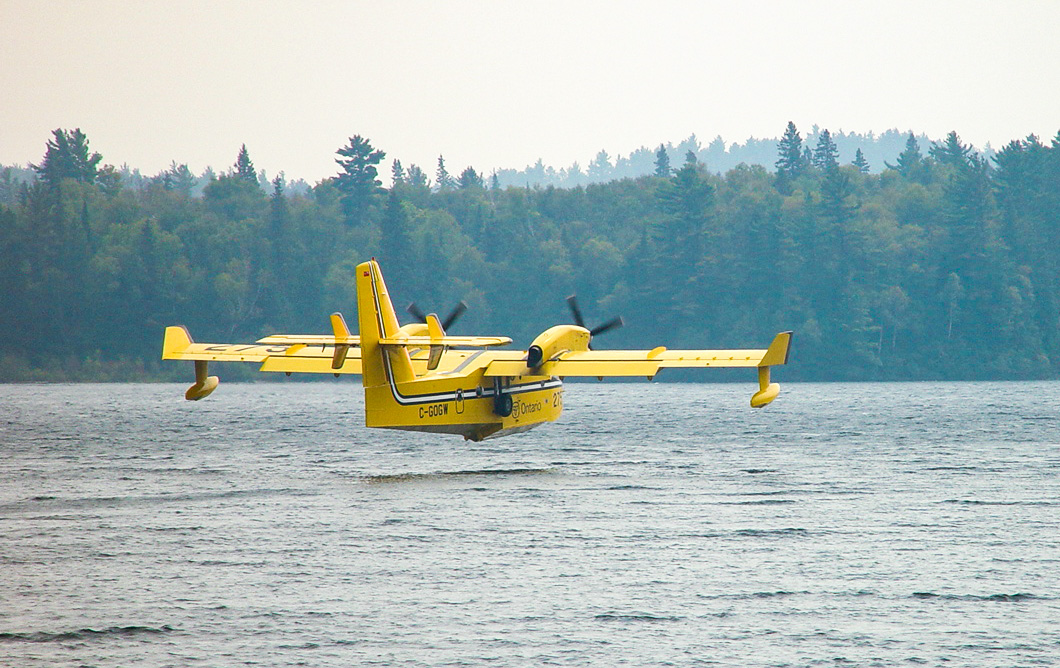 Several aircraft used to fight forest fires in Ontario are sitting in airport hangars and on tarmacs due to a pilot shortage. JP Hornick, president of the Ontario Public Service Employees Union (OPSEU), said the province is now short three water bomber pilots and six helicopter pilots due to low pay and poor working conditions. “The Ontario pilots are the lowest paid in the country, and what the government has put on the table would bring them up to a whopping second lowest paid position across the country,” Hornick said. That pilot shortage has meant one of Ontario’s nine Canadair CL-415 water bombers has been grounded. Three of the province’s eight helicopters used for firefighting have also been grounded. Hornick said two of the five bush planes used by the Ministry of Natural Resources (MNR) have also been grounded because only three pilots are available to fly them.
Several aircraft used to fight forest fires in Ontario are sitting in airport hangars and on tarmacs due to a pilot shortage. JP Hornick, president of the Ontario Public Service Employees Union (OPSEU), said the province is now short three water bomber pilots and six helicopter pilots due to low pay and poor working conditions. “The Ontario pilots are the lowest paid in the country, and what the government has put on the table would bring them up to a whopping second lowest paid position across the country,” Hornick said. That pilot shortage has meant one of Ontario’s nine Canadair CL-415 water bombers has been grounded. Three of the province’s eight helicopters used for firefighting have also been grounded. Hornick said two of the five bush planes used by the Ministry of Natural Resources (MNR) have also been grounded because only three pilots are available to fly them.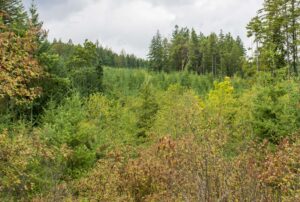 A new study suggests small, consistent amounts of exposure to the herbicide glyphosate can lead to higher incidents of cancer – a finding that has Green party Leader David Coon calling on the province to take the issue seriously. The study, by the Italian-based non-profit Ramazzini Institute, involved exposing rats to small levels of the herbicide and two other products for 2+ years. It found that “statistically significant dose-related (amounts of glyphosate) increased incidences of benign and malignant tumors.”…Bayer, which uses glyphosate in its Roundup herbicide, denounced the study. “It is clear this study has serious methodological flaws, which is consistent with the Ramazzini Institute’s long history of making misleading claims about the safety of various products,” the company said. …A government spokesperson initially told Brunswick News that the study’s findings weren’t applicable in New Brunswick because two products studied aren’t used in Canada.
A new study suggests small, consistent amounts of exposure to the herbicide glyphosate can lead to higher incidents of cancer – a finding that has Green party Leader David Coon calling on the province to take the issue seriously. The study, by the Italian-based non-profit Ramazzini Institute, involved exposing rats to small levels of the herbicide and two other products for 2+ years. It found that “statistically significant dose-related (amounts of glyphosate) increased incidences of benign and malignant tumors.”…Bayer, which uses glyphosate in its Roundup herbicide, denounced the study. “It is clear this study has serious methodological flaws, which is consistent with the Ramazzini Institute’s long history of making misleading claims about the safety of various products,” the company said. …A government spokesperson initially told Brunswick News that the study’s findings weren’t applicable in New Brunswick because two products studied aren’t used in Canada.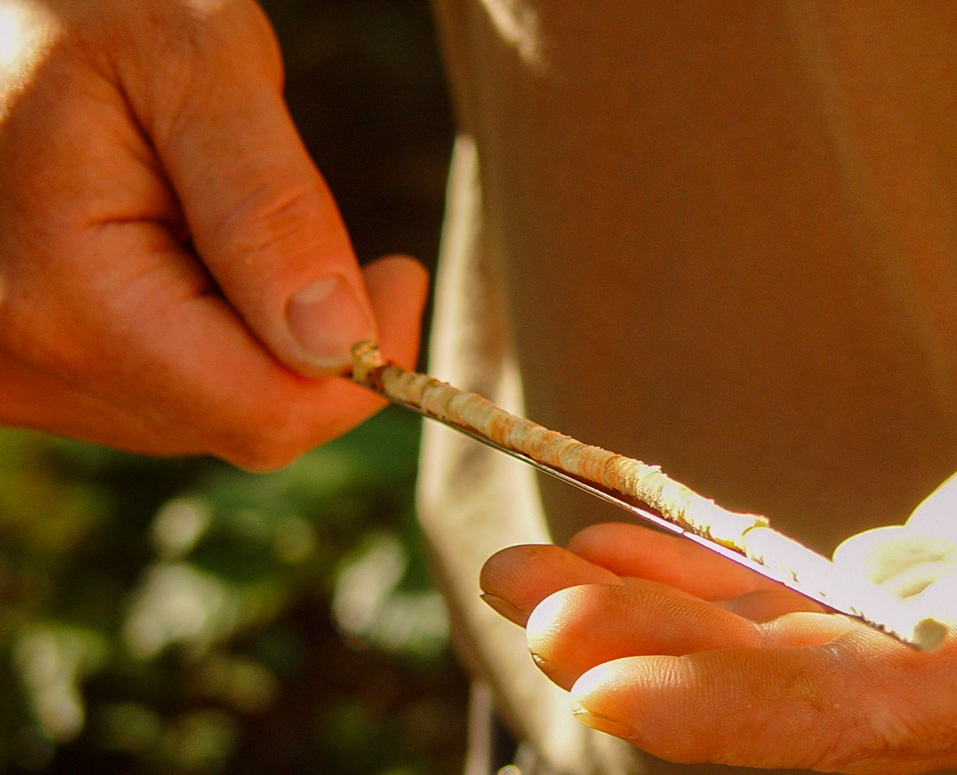 Chris Watson of Lorneville, a rural community in southwest Saint John, recently saw what he believed to be a centuries-old red spruce near Spruce Lake. He drilled a small hole into the trunk by hand and took a pencil-sized sample to have it tested. Ben Phillips, environmental lecturer at Mount Allison University, began a process known as dendochronology on the sample — a study that measures the age of trees by counting small lines otherwise known as tree rings. “This tree, I can confidently say, is over 400 years old,” Phillips, who runs the Acadian Forest Dendochronology Lab on campus, said about the sample he got from Watson. “It is probably in the top 10 oldest trees in the province that I know of.” …Both Phillips and Ilana Urquhart, Nature Trust of New Brunswick conservation co-ordinator, want to see legislation put in place in New Brunswick that would protect areas with old growth, specifically.
Chris Watson of Lorneville, a rural community in southwest Saint John, recently saw what he believed to be a centuries-old red spruce near Spruce Lake. He drilled a small hole into the trunk by hand and took a pencil-sized sample to have it tested. Ben Phillips, environmental lecturer at Mount Allison University, began a process known as dendochronology on the sample — a study that measures the age of trees by counting small lines otherwise known as tree rings. “This tree, I can confidently say, is over 400 years old,” Phillips, who runs the Acadian Forest Dendochronology Lab on campus, said about the sample he got from Watson. “It is probably in the top 10 oldest trees in the province that I know of.” …Both Phillips and Ilana Urquhart, Nature Trust of New Brunswick conservation co-ordinator, want to see legislation put in place in New Brunswick that would protect areas with old growth, specifically.


 HELENA — Aerial resources have been critical in reaching the Jericho Mountain Fire, and Helena has … a tanker base that can support the largest firefighting planes. …The around three thousand gallons of retardant the average plane holds is just one of the reasons it is so effective. Another factor is the team on the ground who get it refueled and refilled and back in the air in just minutes. …The tanker base typically opens for operations on July 7th but kicked off their wildfire season on June 15th nearly a month early this year due to the Jericho Mountain Fire. Once they got the call, the team had the base operational in two hours. So far the tanker base has already helped planes drop more than 32-thousand gallons of retardant this year compared to zero at this time last year.
HELENA — Aerial resources have been critical in reaching the Jericho Mountain Fire, and Helena has … a tanker base that can support the largest firefighting planes. …The around three thousand gallons of retardant the average plane holds is just one of the reasons it is so effective. Another factor is the team on the ground who get it refueled and refilled and back in the air in just minutes. …The tanker base typically opens for operations on July 7th but kicked off their wildfire season on June 15th nearly a month early this year due to the Jericho Mountain Fire. Once they got the call, the team had the base operational in two hours. So far the tanker base has already helped planes drop more than 32-thousand gallons of retardant this year compared to zero at this time last year. The U.S. Forest Service is headed for obsolescence due to recent personnel reductions, proposed budget cuts and re-organization plans. The ability of the Forest Service to meet its legislatively mandated multiple-use mission to the American public is being systematically dismantled. …over the last several months we’ve seen an agency deliberately dismantled by indiscriminate firings, forced retirements and coerced resignations. …The gutting of the Forest Service is a national crisis that will take years or decades to recover from once we, as a society, choose to stop the damage to our federal system of governance. We must individually and collectively speak out to all our elected officials and demand a stop to the out-of-control damage being done. We need to begin to rebuild a federal government that we can rely on to deliver critical services to the American public, including the Forest Service, and protect our wild landscapes from destruction.
The U.S. Forest Service is headed for obsolescence due to recent personnel reductions, proposed budget cuts and re-organization plans. The ability of the Forest Service to meet its legislatively mandated multiple-use mission to the American public is being systematically dismantled. …over the last several months we’ve seen an agency deliberately dismantled by indiscriminate firings, forced retirements and coerced resignations. …The gutting of the Forest Service is a national crisis that will take years or decades to recover from once we, as a society, choose to stop the damage to our federal system of governance. We must individually and collectively speak out to all our elected officials and demand a stop to the out-of-control damage being done. We need to begin to rebuild a federal government that we can rely on to deliver critical services to the American public, including the Forest Service, and protect our wild landscapes from destruction.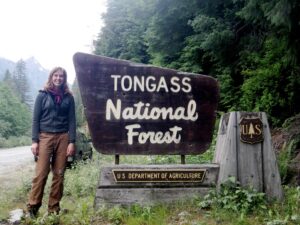 Members of the U.S. Senate last week proposed a major sale of federal land as part of the “Big, Beautiful Bill” proposed by Republicans to fund the U.S. government. If adopted, the proposed sale could be significant for Alaska, where the federal government owns and manages 61% of all land in the state… The concept would significantly increase the amount of logging required on federal land. The U.S. Forest Service would be required to significantly increase the amount of timber sold to loggers, and the Forest Service would be required to sign at least 40 long-term timber sales contracts involving national forests. Those kinds of long-term sales contracts contributed to the establishment of Southeast Alaska’s pulp mills, which relied on harvests from the Tongass National Forest. Most timber harvests from the Tongass currently are exported internationally without processing in the United States.
Members of the U.S. Senate last week proposed a major sale of federal land as part of the “Big, Beautiful Bill” proposed by Republicans to fund the U.S. government. If adopted, the proposed sale could be significant for Alaska, where the federal government owns and manages 61% of all land in the state… The concept would significantly increase the amount of logging required on federal land. The U.S. Forest Service would be required to significantly increase the amount of timber sold to loggers, and the Forest Service would be required to sign at least 40 long-term timber sales contracts involving national forests. Those kinds of long-term sales contracts contributed to the establishment of Southeast Alaska’s pulp mills, which relied on harvests from the Tongass National Forest. Most timber harvests from the Tongass currently are exported internationally without processing in the United States. The Oregon Department of Forestry and the USDA Forest Service will conduct low-level flights in June to monitor forest health. This survey, which began in the 1940s and paused only during the 2020 pandemic, is the longest continuous annual survey of its kind in the United States. Airborne researchers conduct the survey from fixed-wing aircraft, flying between 1,500 and 2,500 feet above ground level at speeds of 90 to 140 miles per hour. They follow a systematic grid pattern, four miles apart, to identify areas where trees are in distress. “Oregon has about 30 million acres of forest so flying in a grid pattern over it allows us to find problems even in remote areas hard to reach by vehicle or on foot,” said Christine Buhl, an entomologist with the Oregon Department of Forestry.
The Oregon Department of Forestry and the USDA Forest Service will conduct low-level flights in June to monitor forest health. This survey, which began in the 1940s and paused only during the 2020 pandemic, is the longest continuous annual survey of its kind in the United States. Airborne researchers conduct the survey from fixed-wing aircraft, flying between 1,500 and 2,500 feet above ground level at speeds of 90 to 140 miles per hour. They follow a systematic grid pattern, four miles apart, to identify areas where trees are in distress. “Oregon has about 30 million acres of forest so flying in a grid pattern over it allows us to find problems even in remote areas hard to reach by vehicle or on foot,” said Christine Buhl, an entomologist with the Oregon Department of Forestry. Sitting in an old-growth spruce fir forest, Doug Smith says he can see first-hand the impact of reintroducing wolves on the larger ecosystem of Yellowstone National Park. Long before Yellowstone became the world’s first national park in 1872, wolves thrived in the U.S. Rocky Mountains. But early Yellowstone rangers killed off the last of the park’s wolves by 1926. Then, in 1995, the U.S. government reintroduced wolves to Idaho and Yellowstone using wolves captured in Canada. Smith helped bring them back to the park and was in charge of Yellowstone’s wolf project for nearly 30 years until he retired in 2022. “Yellowstone is a very different place, with and without wolves,” Smith said. “Wolves definitely have changed this landscape with the help of other predators,” he added. “It’s very different.” And one wolf, in particular, fascinated wolf watchers for longer than almost any other.
Sitting in an old-growth spruce fir forest, Doug Smith says he can see first-hand the impact of reintroducing wolves on the larger ecosystem of Yellowstone National Park. Long before Yellowstone became the world’s first national park in 1872, wolves thrived in the U.S. Rocky Mountains. But early Yellowstone rangers killed off the last of the park’s wolves by 1926. Then, in 1995, the U.S. government reintroduced wolves to Idaho and Yellowstone using wolves captured in Canada. Smith helped bring them back to the park and was in charge of Yellowstone’s wolf project for nearly 30 years until he retired in 2022. “Yellowstone is a very different place, with and without wolves,” Smith said. “Wolves definitely have changed this landscape with the help of other predators,” he added. “It’s very different.” And one wolf, in particular, fascinated wolf watchers for longer than almost any other.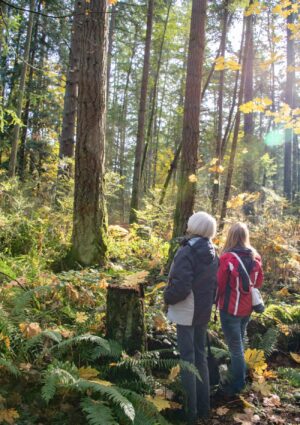 The Portland City Council made a major change last week to the team of inspectors that enforces the city’s Tree Code, which regulates all street trees and some trees on private land across the city. The council voted to move the entire tree regulation team—which currently falls under the Urban Forestry division, a program nested within the parks bureau—to Portland Permitting & Development. …Councilor Eric Zimmerman called into question Urban Forestry and how it polices and fines Portlanders seeking to trim or remove trees on or near their property. …The tree regulators—who also process and vet permits for tree removals, replantings and prunings—will no longer be the under the oversight of city forester Jenn Cairo, whose management has come under scrutiny.The council also voted to transfer $2.1 million of Parks Levy funds from the Tree Code regulation division to backfill maintenance cuts to outdoor parks.
The Portland City Council made a major change last week to the team of inspectors that enforces the city’s Tree Code, which regulates all street trees and some trees on private land across the city. The council voted to move the entire tree regulation team—which currently falls under the Urban Forestry division, a program nested within the parks bureau—to Portland Permitting & Development. …Councilor Eric Zimmerman called into question Urban Forestry and how it polices and fines Portlanders seeking to trim or remove trees on or near their property. …The tree regulators—who also process and vet permits for tree removals, replantings and prunings—will no longer be the under the oversight of city forester Jenn Cairo, whose management has come under scrutiny.The council also voted to transfer $2.1 million of Parks Levy funds from the Tree Code regulation division to backfill maintenance cuts to outdoor parks. 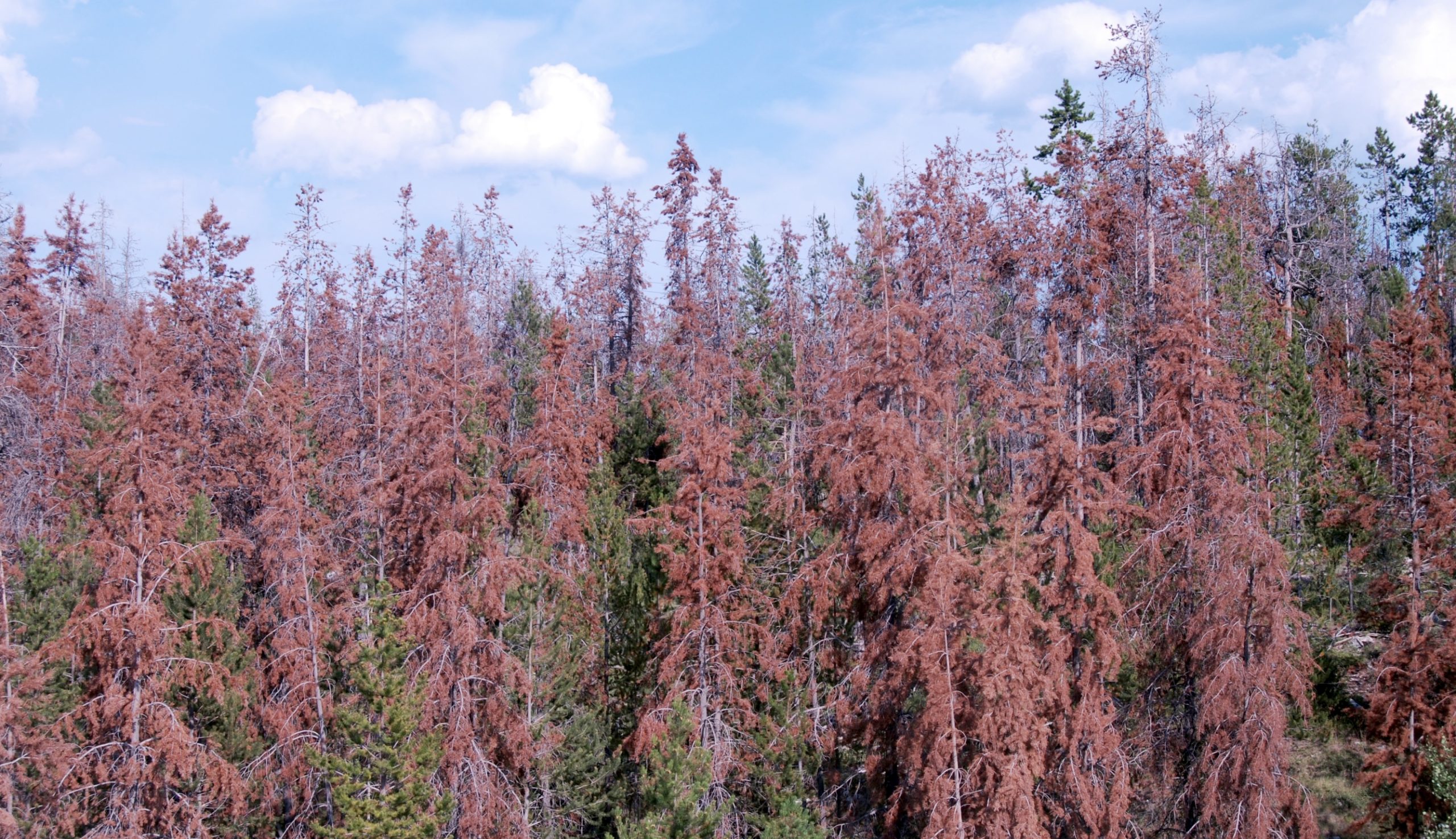 SALEM, Ore. – Researchers are taking to the skies this month to survey Oregon’s forests for damage from pests and other threats, according to the Oregon Department of Forestry and USDA Forest Service. Forest officials said that the Pacific Northwest Aerial Detection Survey is the longest continuous annual survey of its kind in the U.S. Airborne researchers use fixed-wing aircraft to identify trees in distress, flying between 1,500 to 2,500 feet above ground. “Oregon has about 30 million acres of forest so flying in a grid pattern over it allows us to find problems even in remote areas hard to reach by vehicle or on foot,” said Christine Buhl, ODF Forest Entomologist. The survey has highlighted a concerning trend of increasing tree deaths due to drought stress and beetle attacks.
SALEM, Ore. – Researchers are taking to the skies this month to survey Oregon’s forests for damage from pests and other threats, according to the Oregon Department of Forestry and USDA Forest Service. Forest officials said that the Pacific Northwest Aerial Detection Survey is the longest continuous annual survey of its kind in the U.S. Airborne researchers use fixed-wing aircraft to identify trees in distress, flying between 1,500 to 2,500 feet above ground. “Oregon has about 30 million acres of forest so flying in a grid pattern over it allows us to find problems even in remote areas hard to reach by vehicle or on foot,” said Christine Buhl, ODF Forest Entomologist. The survey has highlighted a concerning trend of increasing tree deaths due to drought stress and beetle attacks. As California continues to reel from the historic firestorm that decimated portions of Los Angeles, the state is now facing the prospect of an exceptionally active wildfire season fueled by hot, dry conditions. It may not be ready: Experts say sweeping changes at federal agencies that play key roles in California’s wildfire preparation and response could make a challenging season even worse. …The forecast arrives as the Trump administration is enacting budget cuts, layoffs, office closures and restructuring at the U.S. Forest Service, the National Oceanic and Atmospheric Administration and the Federal Emergency Management Agency. Trump says changes will help eliminate federal waste and save tax dollars. However, these three agencies are critical components of California’s wildfire response capabilities… Weakening them at the start of fire season — and at a moment when human-caused climate change is driving larger and more destructive blazes — puts California at a dangerous disadvantage, multiple experts said.
As California continues to reel from the historic firestorm that decimated portions of Los Angeles, the state is now facing the prospect of an exceptionally active wildfire season fueled by hot, dry conditions. It may not be ready: Experts say sweeping changes at federal agencies that play key roles in California’s wildfire preparation and response could make a challenging season even worse. …The forecast arrives as the Trump administration is enacting budget cuts, layoffs, office closures and restructuring at the U.S. Forest Service, the National Oceanic and Atmospheric Administration and the Federal Emergency Management Agency. Trump says changes will help eliminate federal waste and save tax dollars. However, these three agencies are critical components of California’s wildfire response capabilities… Weakening them at the start of fire season — and at a moment when human-caused climate change is driving larger and more destructive blazes — puts California at a dangerous disadvantage, multiple experts said.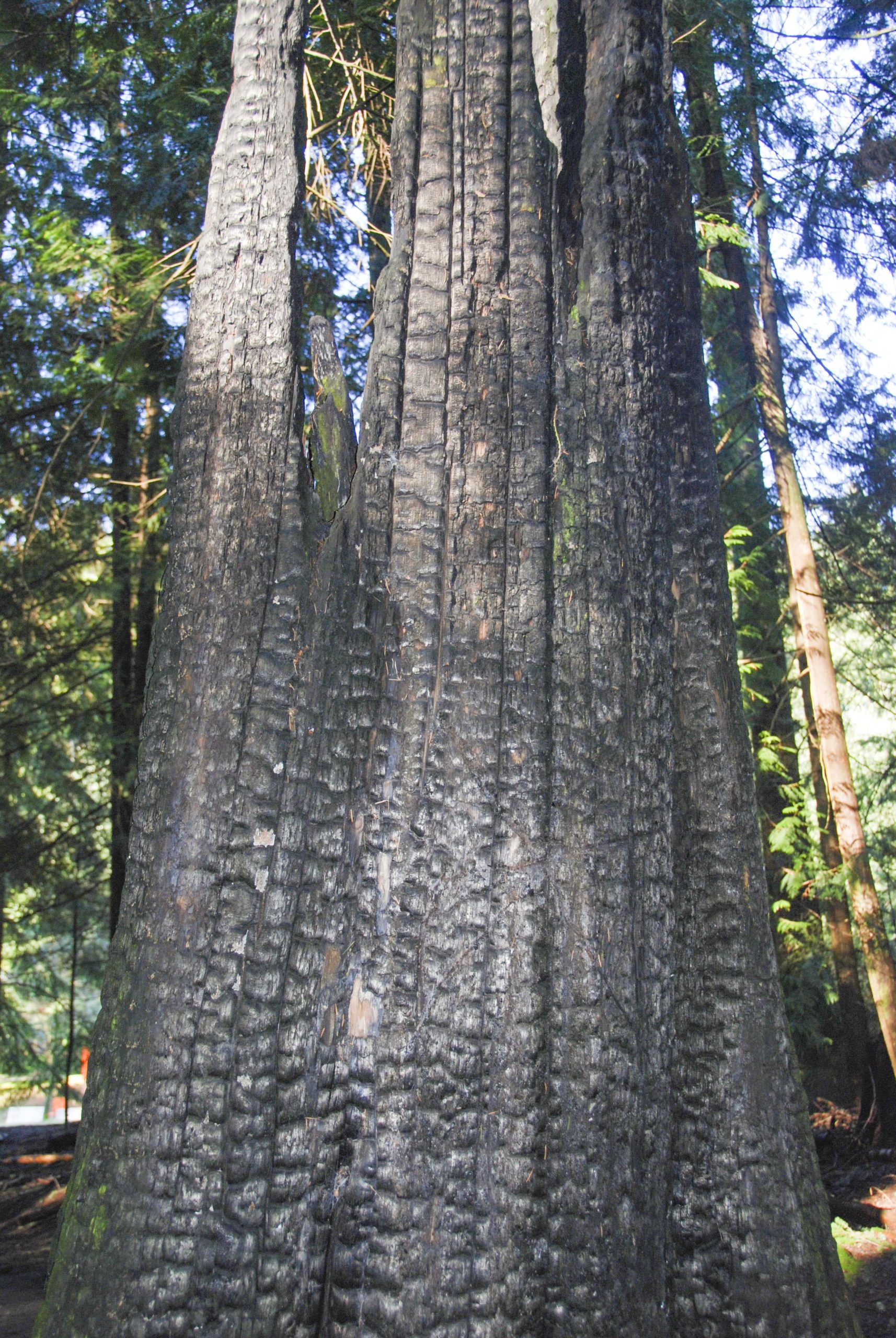 Each year, Oregon braces for wildfire season. And each year, we spend tens of millions (sometimes hundreds of millions) trying to put those fires out. But despite our best efforts, the fires keep getting worse — more dangerous and more destructive. Science tells us that suppression alone isn’t enough. To meaningfully reduce risk, we must invest in proactive mitigation, restoring the health and resilience of fire-prone landscapes, and helping communities prepare for wildfire and smoke. This legislative session, Oregon lawmakers have a chance to make an important initial investment to protect our forests, our homes, and our public health in the long run. A package of bills now under consideration would provide $280 million per biennium for a comprehensive wildfire response. These bills reflect recommendations from the Wildfire Funding Work Group, convened by the State Fire Marshal, Oregon Department of Forestry, Governor Tina Kotek, Tribal Nations, and shaped by a wide array of stakeholders.
Each year, Oregon braces for wildfire season. And each year, we spend tens of millions (sometimes hundreds of millions) trying to put those fires out. But despite our best efforts, the fires keep getting worse — more dangerous and more destructive. Science tells us that suppression alone isn’t enough. To meaningfully reduce risk, we must invest in proactive mitigation, restoring the health and resilience of fire-prone landscapes, and helping communities prepare for wildfire and smoke. This legislative session, Oregon lawmakers have a chance to make an important initial investment to protect our forests, our homes, and our public health in the long run. A package of bills now under consideration would provide $280 million per biennium for a comprehensive wildfire response. These bills reflect recommendations from the Wildfire Funding Work Group, convened by the State Fire Marshal, Oregon Department of Forestry, Governor Tina Kotek, Tribal Nations, and shaped by a wide array of stakeholders.  The California Department of Forestry and Fire Protection (Cal Fire) has announced the allocation of nearly $72 million to support extensive land management projects aimed at restoring forest health and resilience across the state. Through its Forest Health Program, Cal Fire has distributed 12 grants to various local and regional partners working on projects spanning state, local, tribal, federal, and private lands. These initiatives are designed to tackle critical forest health issues, reduce wildfire risks, improve ecosystem resilience, and enhance carbon sequestration across California’s diverse landscapes. The forest health grant projects must focus on large-scale forestlands that involve multiple landowners and jurisdictions, with a minimum size of 800 acres. These projects are expected to be applied across expansive areas to achieve regional forest resilience, prioritizing initiatives that incorporate a mix of activities involving experienced partnerships.
The California Department of Forestry and Fire Protection (Cal Fire) has announced the allocation of nearly $72 million to support extensive land management projects aimed at restoring forest health and resilience across the state. Through its Forest Health Program, Cal Fire has distributed 12 grants to various local and regional partners working on projects spanning state, local, tribal, federal, and private lands. These initiatives are designed to tackle critical forest health issues, reduce wildfire risks, improve ecosystem resilience, and enhance carbon sequestration across California’s diverse landscapes. The forest health grant projects must focus on large-scale forestlands that involve multiple landowners and jurisdictions, with a minimum size of 800 acres. These projects are expected to be applied across expansive areas to achieve regional forest resilience, prioritizing initiatives that incorporate a mix of activities involving experienced partnerships.

 It has only been in the past few years that wildfire smoke from Canada has become a persistent risk to the air we all breathe. Why is this? …A vast swath across northern Canada has a subarctic climate. The types of vegetation best adapted to these conditions are conifer forests dominated by black and white spruce with some pine, balsam fir, larch, aspen and birch. Fire has always been an element of this biome. Historically, about 7.3 million acres have burned annually but in 2023, an astonishing 67 million acres burned. This year’s acreage is on pace to meet or exceed the record-breaking year of 2023. …The fire season is changing in Canada because the climate of Canada is changing. …What this means is that large, long-duration wildfires in Canada’s boreal forest and the smoke plumes they produce are likely to be a new and persistent phenomenon going forward.
It has only been in the past few years that wildfire smoke from Canada has become a persistent risk to the air we all breathe. Why is this? …A vast swath across northern Canada has a subarctic climate. The types of vegetation best adapted to these conditions are conifer forests dominated by black and white spruce with some pine, balsam fir, larch, aspen and birch. Fire has always been an element of this biome. Historically, about 7.3 million acres have burned annually but in 2023, an astonishing 67 million acres burned. This year’s acreage is on pace to meet or exceed the record-breaking year of 2023. …The fire season is changing in Canada because the climate of Canada is changing. …What this means is that large, long-duration wildfires in Canada’s boreal forest and the smoke plumes they produce are likely to be a new and persistent phenomenon going forward. 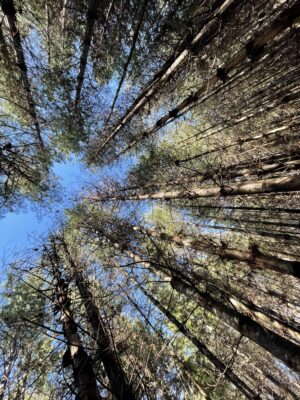 A new analysis quantifies
A new analysis quantifies  As a forester and now in my role at Grown in Britain, I regularly encounter a range of misconceptions about home-grown timber. …First, let’s address the elephant in the room. The UK imports a significant amount of timber, and these figures are often cited to suggest something isn’t working as it should be. However, increasing timber use in construction is a positive development, as it replaces more carbon-intensive materials. One of the key reasons Grown in Britain was set up – is we import substantial amounts of timber whilst neglecting our own forests and woodlands. Over 10 years ago, when GiB started, the government considered over 60% of our woods were not managed. Our initiative, alongside the efforts of many, has reduced this to nearer 40% today. …With global and UK timber demand increasing, it seems inappropriate to import so much when we’re not fully utilising our resources.
As a forester and now in my role at Grown in Britain, I regularly encounter a range of misconceptions about home-grown timber. …First, let’s address the elephant in the room. The UK imports a significant amount of timber, and these figures are often cited to suggest something isn’t working as it should be. However, increasing timber use in construction is a positive development, as it replaces more carbon-intensive materials. One of the key reasons Grown in Britain was set up – is we import substantial amounts of timber whilst neglecting our own forests and woodlands. Over 10 years ago, when GiB started, the government considered over 60% of our woods were not managed. Our initiative, alongside the efforts of many, has reduced this to nearer 40% today. …With global and UK timber demand increasing, it seems inappropriate to import so much when we’re not fully utilising our resources.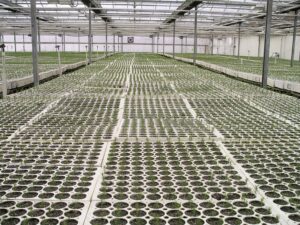 Seeds from two trees that survived the atomic bomb attack on Hiroshima at the end of World War Two are being grown at a Staffordshire university. The seeds were collected from an oriental plane tree in the grounds of the Tenma Elementary School, which was destroyed by the bombing, and a 200-year-old ginkgo tree growing in Shukkeien Garden. Both trees were situated less than a mile from the bomb site on 6 August 1945 and miraculously survived the bombing. They will now be cared for by experts at Keele University until they become tall and sturdy enough to be planted in the ground. The university says it is part of an international project to promote peace and hope. The seeds were sent to Keele through the Green Legacy Hiroshima initiative, which aims to distribute seeds and saplings from ‘survivor trees’ worldwide.
Seeds from two trees that survived the atomic bomb attack on Hiroshima at the end of World War Two are being grown at a Staffordshire university. The seeds were collected from an oriental plane tree in the grounds of the Tenma Elementary School, which was destroyed by the bombing, and a 200-year-old ginkgo tree growing in Shukkeien Garden. Both trees were situated less than a mile from the bomb site on 6 August 1945 and miraculously survived the bombing. They will now be cared for by experts at Keele University until they become tall and sturdy enough to be planted in the ground. The university says it is part of an international project to promote peace and hope. The seeds were sent to Keele through the Green Legacy Hiroshima initiative, which aims to distribute seeds and saplings from ‘survivor trees’ worldwide.